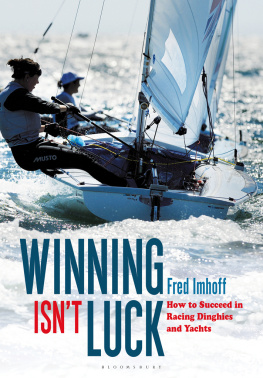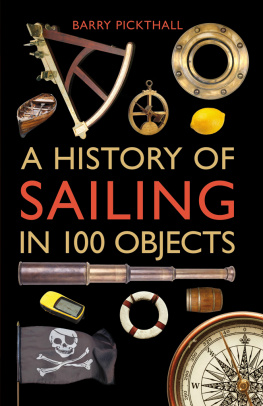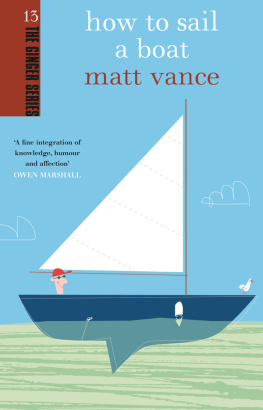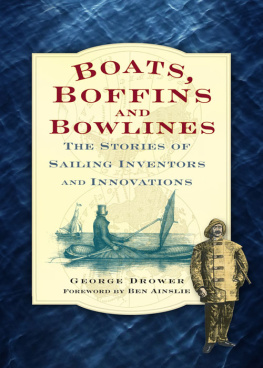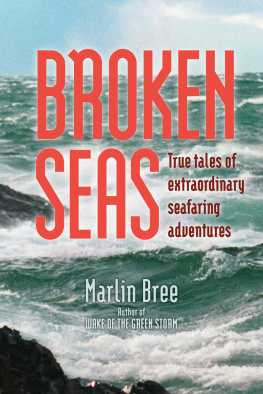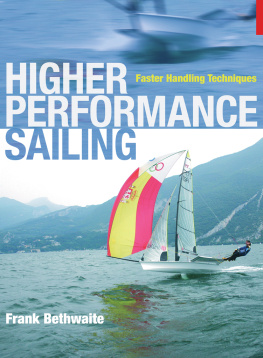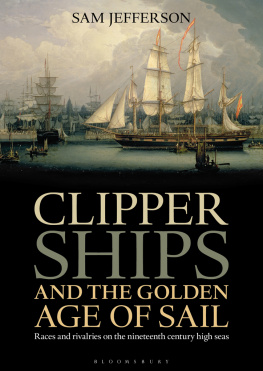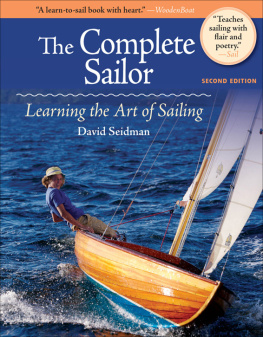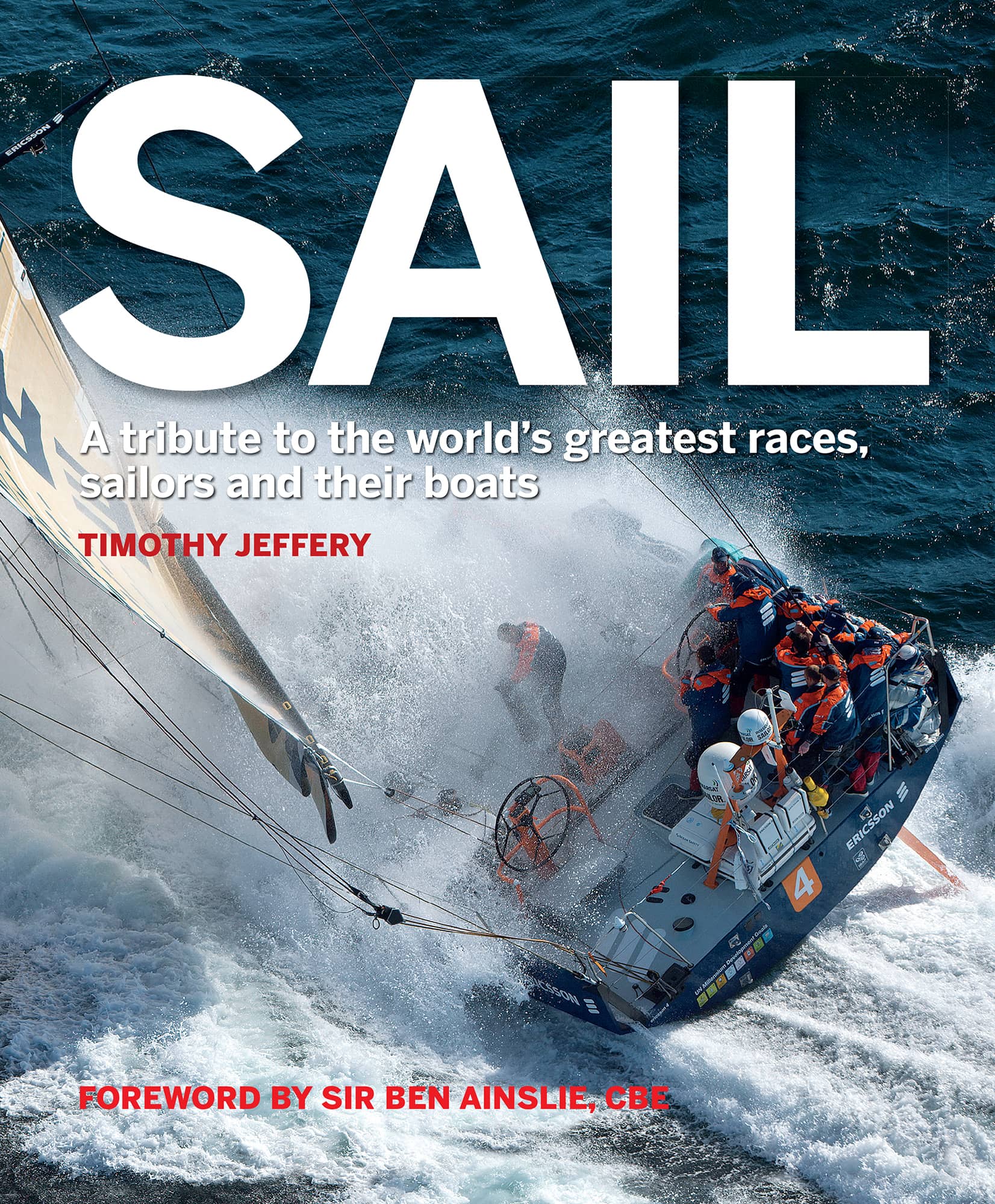SAIL
TIMOTHY JEFFERY
Foreword
S ailing is my course through life; it has shaped my world from when I was a kid. You cant change the direction or the strength of the wind, but you can use it to reach your goal. Thats why sailing is the best sport on Earth. It can challenge you or relax you. It can frustrate and it can reward. If you allow yourself to think for a moment that you are on top of it, sailing will remind you, with the next crashing wave, that there is always more to learn.
Ever since my parents pushed me off in an Optimist dinghy in the upper reaches of a Cornish harbour, my life has revolved around what, in Moby Dick, Herman Melville called the watery parts of the world. For every little of bit of effort Ive given to win a gold medal or the Americas Cup, those watery parts have repaid me with so much more.
As a kid I grew up hearing of my dads experience when he organized a group of friends to race in the very first Whitbread Round the World Race. They had an amazing experience, from an epic party in Rushcutters Bay in Sydney where nearly 30 years later I was based for the Olympic sailing competition to their 22-m ketch being knocked down by a massive squall at Cape Horn.
You can master a boat, but you can never truly master the wind and the sea. Every time you leave land behind and go afloat, its a new experience. Race a high-performance boat at the pinnacle of our sport and you take the wind on. Its a tool to use more efficiently than your rivals. Turn the tempo down, go cruising and you can just go with the flow, setting a course where the wind can make your sailing the most enjoyable.
When I started racing, I became aware of my first hero in sailing. The self-bailer in most dinghies was an Elvstrm, and the racing rules guides I referred to were Elvstrms. The famous Dane, Paul Elvstrm, was an inspirational figure to me. He earned his success in the Olympics by working harder and training longer, so that he got himself in a position where success was pretty much inevitable.
This total focus was something that Russell Coutts, another sailor I admire, was famous for, and I was fortunate to see it first hand as a teammate during the 2013 Americas Cup in San Francisco. Some people say I have similar intensity, but as far as Im concerned, if you dont compete hard, fast and fair, with 100 per cent commitment, then you are not competing to your maximum potential.
The beauty of sailing, though, is that you can step on a boat with no intention other than enjoying the pure pleasure of being on the water. I feel as at home there as on land, and the simple pleasure of enjoying a boat moved along by wind is satisfaction at an elementary level. Good company on a boat is one of the best ways of chilling out that I know.
Peter Blake, another hero of mine, once said that when he was completely exhausted after racing around the world, he would wind down by hoisting a pair of oars over his shoulder and walking inland until he met the first person who asked him what he was carrying. I know many competitors who can relate to that need to get away from something you have lived for in every waking moment for several years. I also know that Blakey always went back to messing around on boats.
I cant imagine a time not wanting to step on board and turn the bows away from land. Sailing is that rare thing in sport. You can do it throughout your life, throughout the world, in any shape or form of boat, in any informal or organized way, with whomever you like and whenever you want. It is pure joy.
Ben Ainslie 
Introduction
W e go down to the sea. The phrase is there in hymn, verse and common usage. In geographical terms, it makes sense. Land is always higher or it was until man learnt to construct walls, polders and leves.
Yet anyone who has tried it will tell you that going to sea is an elevating experience. That sense of leaving land for the first time, the stillness of wind power, the whistle of strong winds, the menacing roar of a foaming crest, the stars overhead, the phosphorescence streaming behind from the rudder blade, the chill before the dawn and the hint of warmth at sunrise; these experiences lift the heart, enhance the senses and fuel the memory.
Necessity rather than pleasure first lured man afloat. It was a means of communication, travel and transport. In many instances it was easier and faster than overland travel. Long before the voyages of exploration by the Portuguese, Spanish, Italians, British and Dutch from the 16th centuries onwards, the Vikings, Polynesians and Chinese were considered the earliest ocean voyagers. Even before this, man had fashioned boats from trees and animal skins for inland and coastal use. Somewhere, sometime, small personal boats grew into craft big enough to carry loads. Often, its the Egyptians who are credited with boatbuilding on the Nile, around 3500 BC. Indeed, the Egyptian civilization probably created the first pleasure boats, the royal vessels used by the pharaohs and their court. The origins of the sailing boat might reach even further back in time to the Old World, as fragments of pottery showing a boat and a sail have been found in the modern-day Arabian peninsula.
The word yacht comes from the Dutch jacht or jaghte, the origin of which means chasing. Jachtschepen were the faster boats used to carry men, messages and pilots to and from the bigger trading vessels. A widely accepted view is that when Charles II returned from the Netherlands to England to reclaim the throne in 1660, he travelled by jacht, and so the word yacht came into usage. From a quirk of history, we now have a recreation that knows no boundaries around the world. We also have a sport that is enjoyed by ordinary people in simple boats yet is also practised by professionals who, at the elite level, can earn million-dollar salaries and be garlanded with Olympic medals. Such big earnings are not just the currency of the last couple of decades, however the best professionals in the 19th century could also earn substantial incomes.
Many would argue that for sheer breadth of skills, often demonstrated in arduous and sometimes dangerous conditions, todays leading pro sailor is vastly underappreciated compared with those can drive a ball down a fairway, serve an ace on match point, throw a ball with piercing accuracy down field or dunk it through a hoop. But the true beauty of sailing is that it offers an equal chance for ordinary people to do extraordinary things, just as extraordinary sailors can make the superlative seem deceptively easy.


